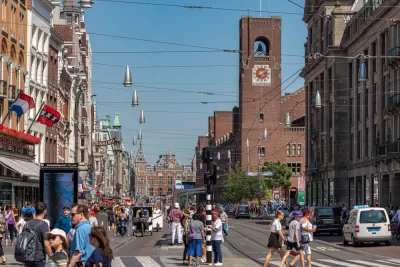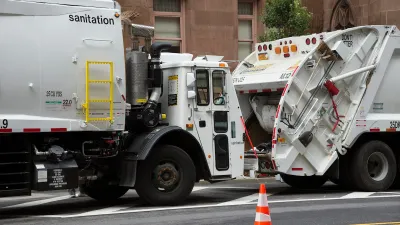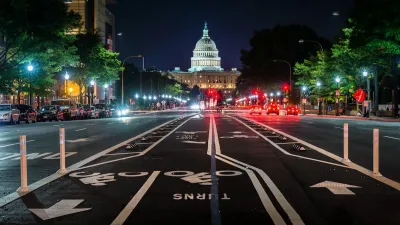The arduous process for getting a driver’s license in Holland is one reason why that country’s roads are consistently safer than their U.S. counterparts.

In addition to their robust pedestrian and bike infrastructure and safe road designs, there’s another reason that Holland’s roads are so safe, writes Kea Wilson in Streetsblog: the country’s arduous process for gaining a driver’s license.
“Of course, getting a driver's license isn't totally impossible in Holland — indeed, 80 percent of Dutch adults will eventually get one, compared to 89 percent of Americans — and on paper, passing muster at a Dutch DMV doesn't seem too daunting.” However, Wilson explains, almost half of test-takers fail the test in a given year, and it’s almost impossible to pass without rigorous studying.
Wilson describes the test-taking process, which quizzes applicants on a variety of situations. “Test-takers might be denied a license for not knowing whether their cars' heating or air conditioning uses more fuel, or what to do if their vehicle becomes submerged in a lake, or why the design of a sleepy rural road might induce "polderblindness," or zoning out behind the wheel.”
While driver’s testing requirements aren’t the only reason Holland’s roads are so much safer than America’s, it points to one way to emphasize the importance of road safety and ensure drivers understand the dangers they pose to others behind the wheel.
FULL STORY: It’s Hard to Get a Driver’s License in Holland — And That’s One Reason Dutch Roads Are So Safe

Alabama: Trump Terminates Settlements for Black Communities Harmed By Raw Sewage
Trump deemed the landmark civil rights agreement “illegal DEI and environmental justice policy.”

Planetizen Federal Action Tracker
A weekly monitor of how Trump’s orders and actions are impacting planners and planning in America.

The 120 Year Old Tiny Home Villages That Sheltered San Francisco’s Earthquake Refugees
More than a century ago, San Francisco mobilized to house thousands of residents displaced by the 1906 earthquake. Could their strategy offer a model for the present?

In Both Crashes and Crime, Public Transportation is Far Safer than Driving
Contrary to popular assumptions, public transportation has far lower crash and crime rates than automobile travel. For safer communities, improve and encourage transit travel.

Report: Zoning Reforms Should Complement Nashville’s Ambitious Transit Plan
Without reform, restrictive zoning codes will limit the impact of the city’s planned transit expansion and could exclude some of the residents who depend on transit the most.

Judge Orders Release of Frozen IRA, IIJA Funding
The decision is a victory for environmental groups who charged that freezing funds for critical infrastructure and disaster response programs caused “real and irreparable harm” to communities.
Urban Design for Planners 1: Software Tools
This six-course series explores essential urban design concepts using open source software and equips planners with the tools they need to participate fully in the urban design process.
Planning for Universal Design
Learn the tools for implementing Universal Design in planning regulations.
Clanton & Associates, Inc.
Jessamine County Fiscal Court
Institute for Housing and Urban Development Studies (IHS)
City of Grandview
Harvard GSD Executive Education
Toledo-Lucas County Plan Commissions
Salt Lake City
NYU Wagner Graduate School of Public Service





























